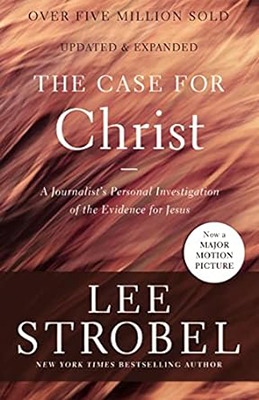The Case For Christ
“The Case for Christ” is a book by Lee Strobel, originally published in 1998. Strobel, a former investigative journalist and atheist-turned-Christian, sets out to explore the historical evidence for the claims of Christianity. Here’s a summary:
Main Themes:
Personal Journey: Strobel begins the book by recounting his own journey from atheism to Christianity. He shares how his wife’s conversion to Christianity prompted him to investigate the claims of the faith, leading him to embark on a quest for evidence to support or refute the existence of Jesus and the truth claims of Christianity.
Historical Evidence: Strobel interviews a variety of scholars and experts in fields such as history, archaeology, and theology to examine the historical evidence for Jesus Christ. He explores topics such as the reliability of the New Testament documents, the evidence for Jesus’s resurrection, and the credibility of eyewitness testimony.
Expert Testimony: Throughout the book, Strobel presents the testimonies of scholars and experts who make the case for Christianity based on historical and scientific evidence. He engages with their arguments and evaluates the strength of the evidence they present, seeking to build a cumulative case for the truth of Christianity.
Counterarguments: Strobel also considers counterarguments and objections raised by skeptics and critics of Christianity. He addresses common challenges to the Christian faith, such as allegations of myth-making, inconsistencies in the Gospel accounts, and the problem of evil, offering responses based on his interviews and research.
Key Concepts:
– Eyewitness Testimony: Strobel emphasizes the importance of eyewitness testimony in establishing the reliability of historical events, particularly the resurrection of Jesus. He explores the accounts of Jesus’s appearances to his disciples following his crucifixion and evaluates the credibility of the eyewitness testimony recorded in the New Testament.
– Historical Methodology: Strobel engages with the methods and criteria used by historians to assess the reliability of ancient documents and events. He considers issues such as textual criticism, corroborating evidence from non-Christian sources, and the cultural context of 1st-century Palestine.
– Personal Transformation: Beyond presenting a historical argument for Christianity, Strobel reflects on the personal and existential implications of faith. He shares stories of individuals whose lives have been transformed by their encounter with Jesus Christ, suggesting that Christianity offers not only intellectual answers but also spiritual fulfillment and purpose.
Legacy:
“The Case for Christ” has become one of the most influential apologetic works in contemporary Christian literature, widely read and studied by believers and seekers alike. Strobel’s journalistic approach, coupled with his personal narrative and engagement with scholarly research, has made the book accessible to a broad audience and contributed to ongoing discussions about the evidence for Christianity and the nature of faith.

